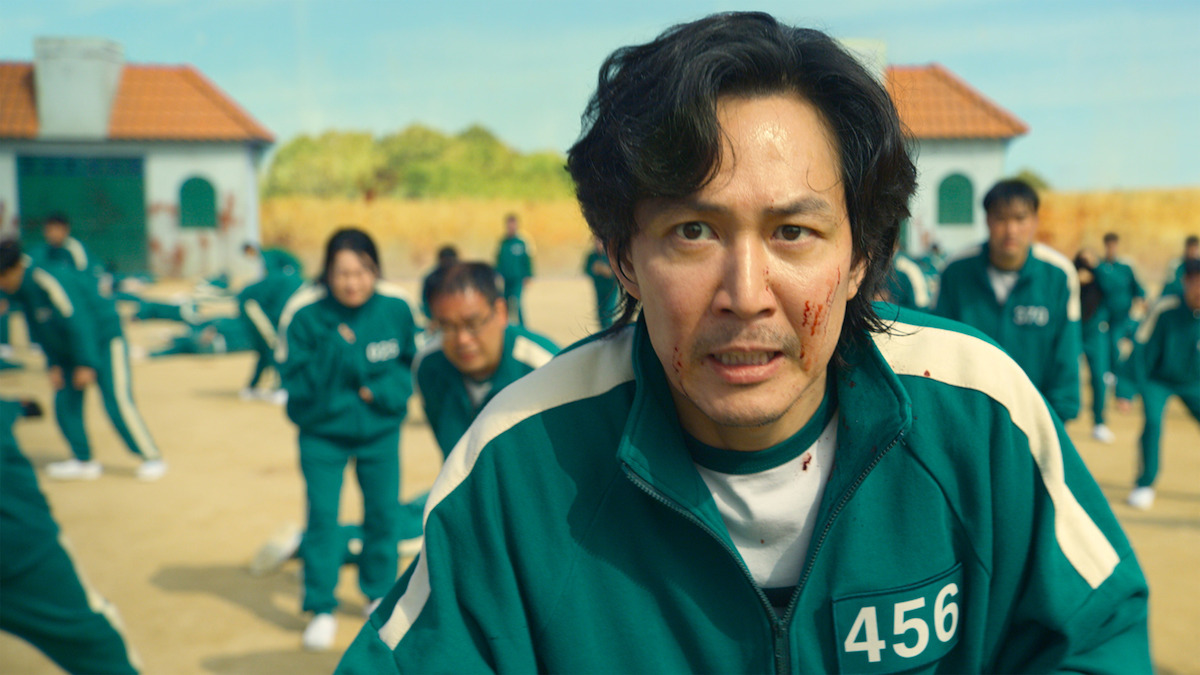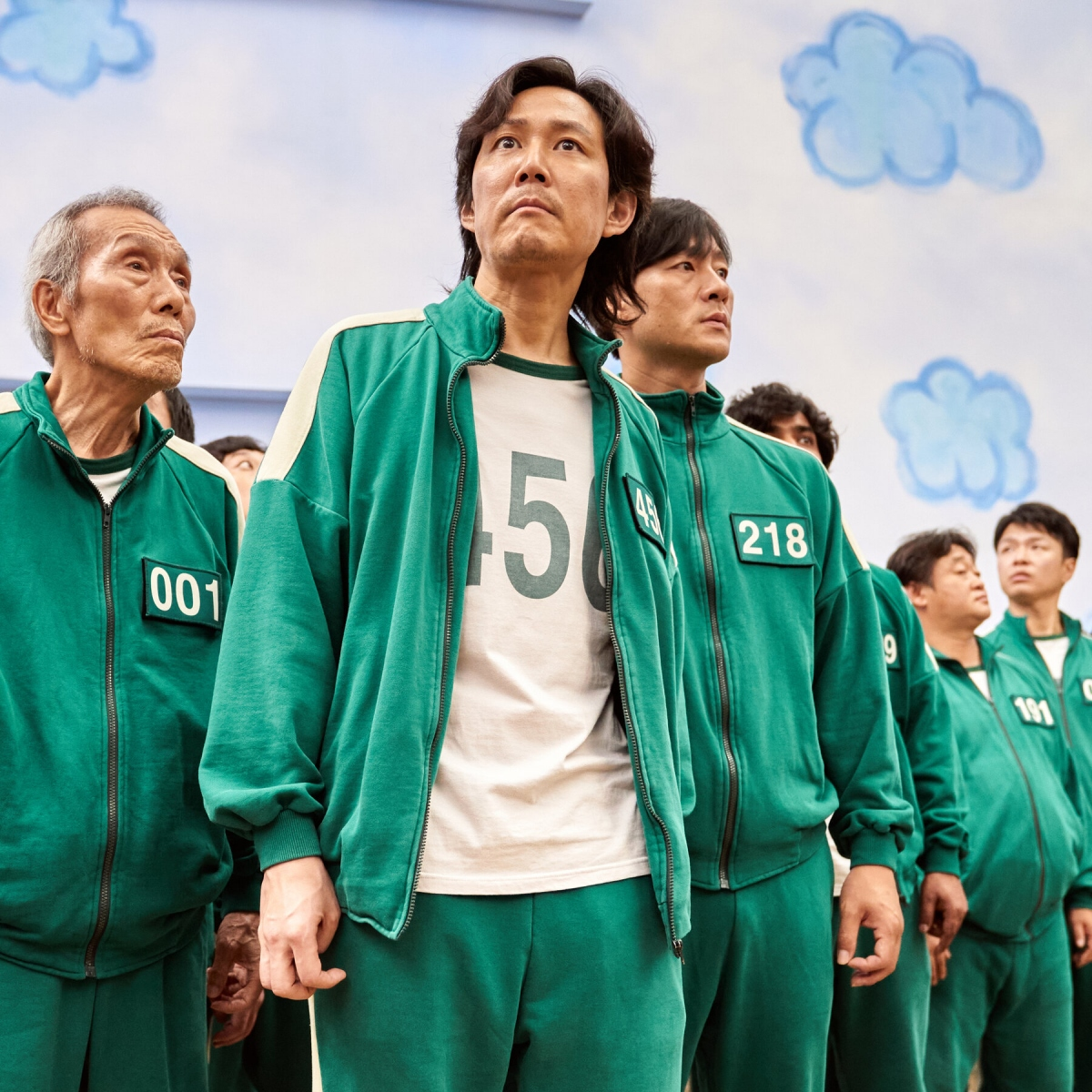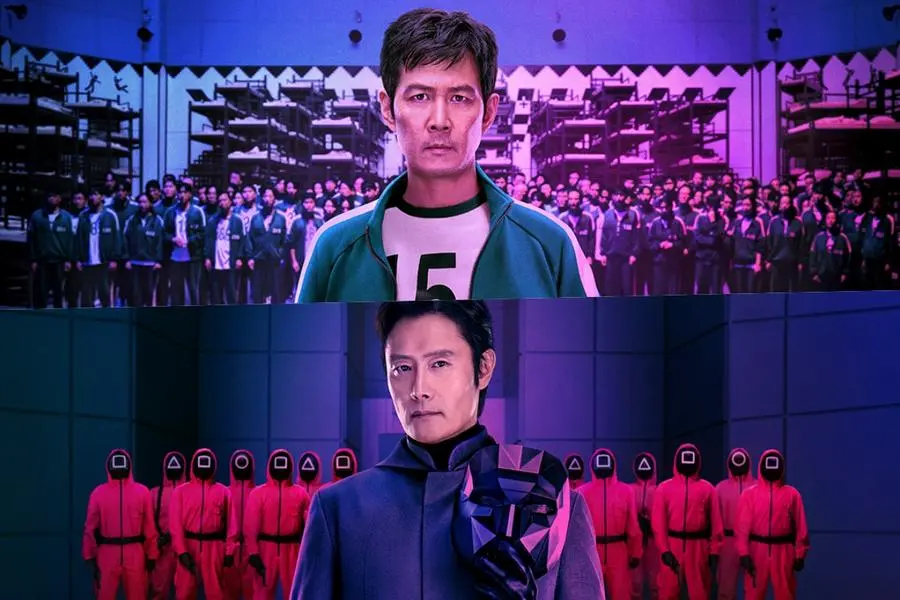The Tragedy of the Poor and the Harsh Reality of a Survival Game
Released in 2021, Squid Game, an 18+ series focusing on survival, has become a global phenomenon. Set against the backdrop of a deadly game, 456 players—each in dire financial straits—must compete in a series of challenges based on traditional Korean children’s games like “Red Light, Green Light,” “Tug of War,” and “Marbles,” all recreated in a dystopian and brutal environment. Every failure carries the grave consequence of death. The true game is not merely about survival; it reflects a desperate yearning for life, forcing participants to confront their humanity amidst extreme adversity.

Not just a gripping survival drama, the first season of Squid Game cleverly intertwines deep social commentary. From class stratification and economic pressure to the darker aspects of human nature, the show prompts viewers to question the true value of life within a society driven by capitalism. The season finale leaves a haunting impression as Gi Hun, the last surviving player, discovers that the mastermind behind the game is his former ally, Oh Il Nam. Rather than escaping to a peaceful life, Gi Hun chooses to confront the horrors of the game to find answers.

The second season promises to delve deeper into the dark world of survival games. This time, Gi Hun is no longer just a player but takes on the role of an investigator, seeking to unveil the operation behind these deadly games. The introduction of VIPs—ultra-wealthy spectators—will heighten the stakes, suggesting that the world of Squid Game is not confined to Korea but may extend globally.
Historic Achievements and Global Impact
Just 17 days after its release, Squid Game garnered over 111 million views, quickly becoming the most-watched series in Netflix history. The show topped charts in over 90 countries, spanning continents from Asia to Europe, North America to Africa, breaking language barriers and becoming a cultural icon. The imagery of the guards in green tracksuits and the haunting symbols associated with the game became global cultural symbols within weeks.
Squid Game also brought significant acclaim to South Korea at international awards. The series won 6 prestigious Emmy Awards, including Outstanding Lead Actor for Lee Jung Jae, marking a historic moment as the first Asian actor to receive this honor. Director Hwang Dong Hyuk also won Outstanding Directing, establishing a critical milestone in the history of Korean cinema on the global stage.

Not only did it elevate the main actors, particularly model Jung Ho Yeon, who became a global fashion icon, but Squid Game also prompted a re-evaluation of the South Korean entertainment industry. It sparked renewed interest in Asian survival films, leading many Western production companies to adapt elements from this groundbreaking series.
Will Season 3 Be the Final Chapter?
The third season of Squid Game has been confirmed as the concluding chapter, wrapping up the storyline that began in 2021. Director Hwang Dong Hyuk has indicated that this season will explore the “darkest aspects of humanity,” while also revealing hidden secrets about the game’s operations. Seong Gi Hun will continue his fight, no longer just a pawn in the deadly game, but as a leader seeking to dismantle the system. Viewers are curious about how the third season will conclude this long-running saga and whether it will explore the possibility of change without further loss of life.
Furthermore, Season 3 is expected to introduce new characters, representing various countries, showcasing that the scale of Squid Game transcends Korean borders. It will no longer be merely a survival story of a small group, but rather a reflection on a larger society where the evils of oppression are normalized and profit-driven. The pivotal question that Season 3 must address is: can the game truly end? How can it be dismantled without sacrificing more lives?

After two intense seasons, the third season is not only highly anticipated for its storyline but also for its potential to further solidify Squid Game as a powerful cultural phenomenon. This is the moment when the series must demonstrate that it is not just a fleeting trend but a significant commentary on society, addressing systemic issues of justice, privilege, and the human condition in a modern world. If the first season was a visceral experience, and the second a political commentary, then the third season is poised to be a profound emotional journey, intertwining themes of morality and the human spirit in a world where survival often comes at a steep price.
Image Source: Netflix




















